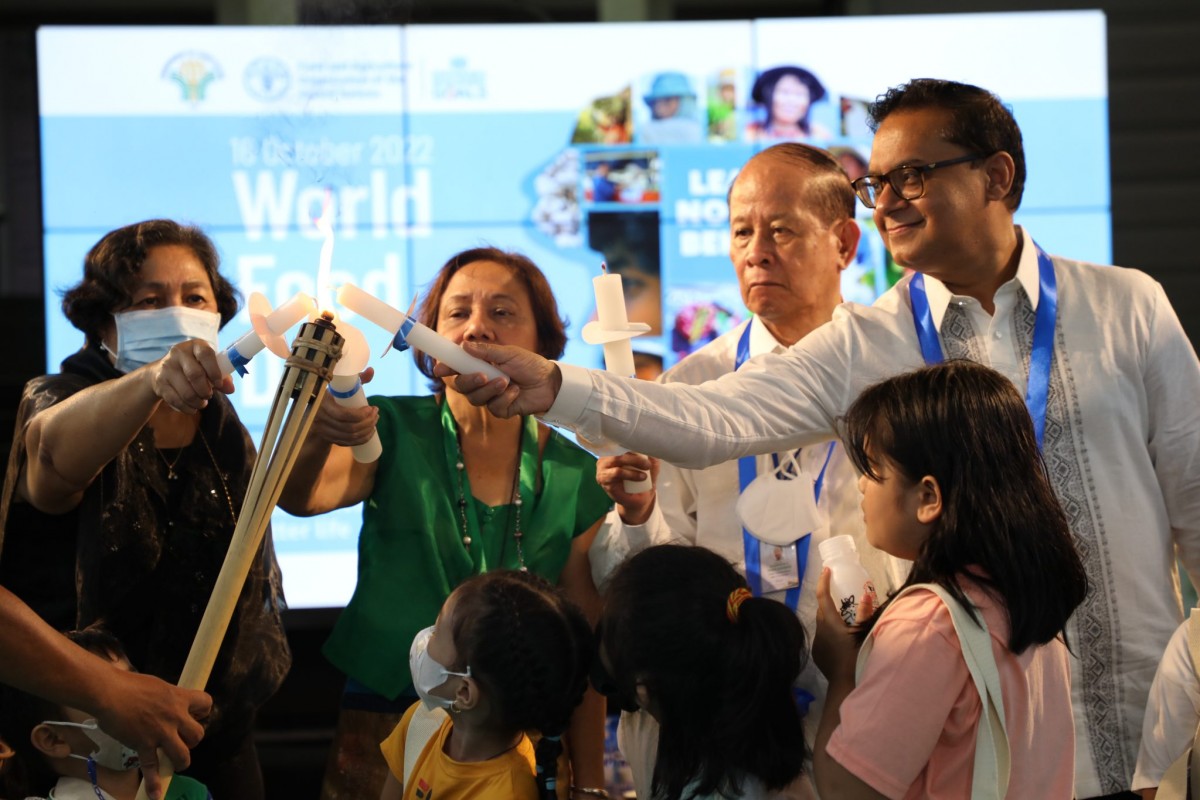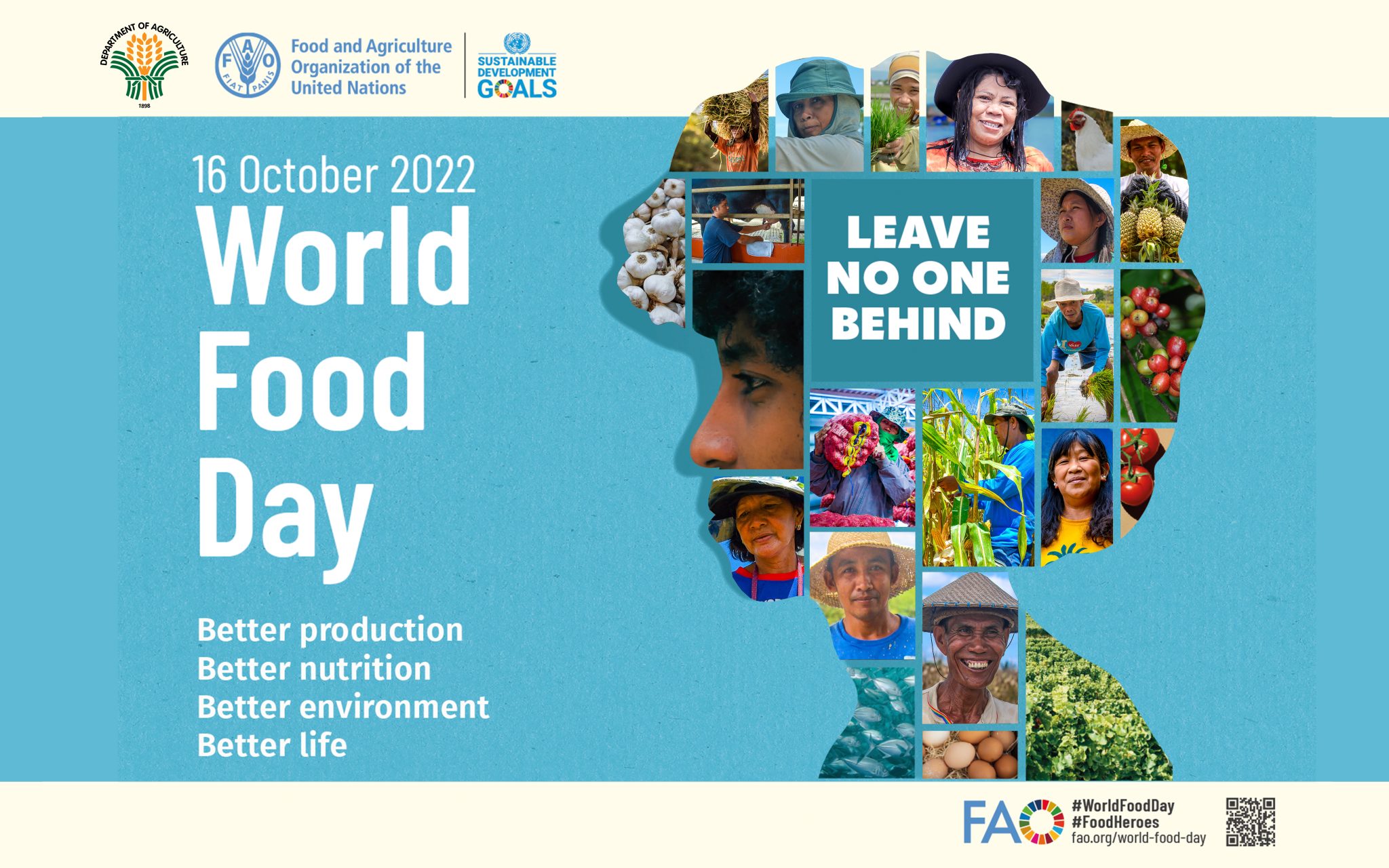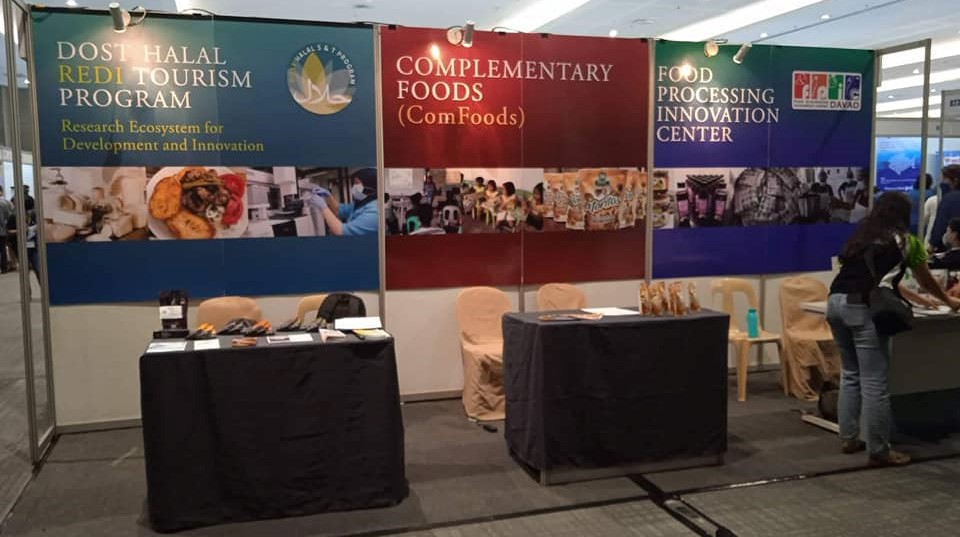QUEZON CITY -- In celebration of the World Food Day (WFD) 2022, the Department of Agriculture (DA) under the leadership of President Ferdinand “Bongbong” Marcos Jr., reaffirms its commitment in addressing hunger and malnutrition.
During the WFD 2022 opening ceremony on October 17, DA Senior Undersecretary Domingo Panganiban echoed the DA’s commitment to implement programs that combat global hunger and malnutrition and promote food safety.
“By strengthening the value chain, ensuring food security requires the inclusion of compliance to food safety standards for its recipe of success. Every Filipino must not mainly have food on the table; they must consume the food that is safe—safe from harmful substances and other factors that compromise the health of our good consumers,” Senior Usec. Panganiban stated.
According to the FAO, the WFD 2022 highlights the impacts of “multiple global challenges including the ongoing COVID-19 pandemic, conflict, climate change, rising prices, and international tensions” to the attainment of global food security. Thus, the WFD 2022 revolves on the theme, “Leave no one behind: better production, better nutrition, a better environment, and a better life for all.”
However, achieving this goal is more challenging this time as FAO Assistant Country Representative Tamara Palis-Duran revealed that the UN’s State of Food Security and Nutrition in the World report estimated about 828 million people who faced chronic undernourishment in 2021. This revealed an increasing trend as the said data is 46 million more than in 2020 and 150 million more than in 2019.
“The impact of the COVID-19 had already widened existing inequalities, increased extreme poverty, and made eradicating hunger even harder, especially in vulnerable countries such as the Philippines. The United Nations, in fact, has indicated that the world is not on track to achieve Sustainable Development Goal or SDG 2 of attaining zero hunger by 2030,” explained Palis-Duran.
UN World Food Programme Acting Country Director Dipayan Bhattacharyya noted that about 3.1 billion people globally cannot afford a nutritious, diversified diet. In the Philippines alone, the country’s economy continues to face economic losses amounting to $4.5 B due to the three burdens of hunger: undernutrition, overnutrition, and hidden hunger or micronutrient deficiency.
“What we believe is that if you have to improve nutrition at a massive scale, we should also ensure that the behavior of all individuals and families should change. So behavior change communication is extremely important. That would target the women, children, and caregivers so that we can positively influence their nutrition-related behavior,” he said.
Bhattacharyya added that food security may be ahieved by improving food production, introducing new post-harvest laws and practices, strengthening the food value chain, market inclusion of smallholder farmers, promoting better nutrition through food production, improving agricultural value chain and practices, promoting climate-sensitive and climate-resilient smart agriculture, and protecting and promoting biodiversity through the adoption of nature-based solutions.
Keynote speaker Senator Cynthia Villar, who heads the Senate Committee on Agriculture, Food, and Agrarian Reform, also raised concern as the Philippines only ranked 64 out of 113 countries in the 2021 Global Food Security Index, and that the Philippine Institute for Development Studies (PIDS) recorded 44% of the total households in the archipelagic country as food-secure from 2018 to 2019.
Citing issues on inflation, COVID-19, the emergence of transboundary animal diseases, declining agricultural productivity, and increasing population in the country, the Senator reiterated the need to enhance assistance and services for agricultural workers and to effectively formulate and implement legislations that will improve agricultural production and profitability in the country.
“We need to double our efforts to ensure that every Filipino, at all times, shall have access to sufficient, safe, and nutritious food that meets their food preferences and dietary needs for an active and healthy life. We have to secure our farmers and fisherfolk and support them to grow the food that we need,” Senator Villar expressed.
The DA’s WFD celebration this year features a market of agricultural products from various regions and an exhibit highlighting the following initiatives:
● Increasing rice production by distributing quality seeds, farm inputs, machineries, and technical assistance to 4.82 million rice farmers and 986 farmer cooperatives and associations (FCAs);
● Intensifying corn, cassava, and sorghum production for food and animal feeds by providing science-based interventions and support services to 556,833 farmers and 832 FCAs;
● Implementing sentinel protocol and clustering, establishing multiplier farms, enhancing insurance programs, and providing access to credit and loan assistance to 26,828 hog raisers and 3,415 groups through the Integrated National Swine Production Initiatives for Recovery and Expansion (INSPIRE);
● Streamlining farm operations and management, expanding production areas, and enhancing priority high-value commodities production, benefitting 11,264 high-value crop farmers and 9,030 groups;
● Distributing fishing boats, fishing paraphernalia, and fingerlings, as well as delivering market development services and technical assistance to 527,043 fishers and 19,788 fisher groups;
● Enforcing fishing laws with vigilance;
● Improving the Navotas, Sual, Camaligan, and General Santos Fish Ports to improve the livelihoods of 13.73 million individuals;
● Constructing farm-to market roads in 80 locations; and
● Enhancing the Kadiwa ni Ani at Kita to remove layers of middlemen in transactions, which will increase profit of farmers and fisherfolk, set affordable prices for consumers, and benefit 2,726 groups by 2023.
The National Meat Inspection Service and the National Dairy Authority also led the distribution of food packs to five mothers and ten daycare and elementary school children from Barangay Vasra, Quezon City.
The opening ceremony was graced by officials, bureau directors, heads of attached agencies and corporations, division chiefs, and personnel of the DA Family. Quezon City Mayor Joy Belmonte, through Quezon City Health Department Nutritionist Jirah Asa Sideco, also reaffirmed the local government’s support to DA’s plans of action towards food security. (KYAVergara, DA-AFID)




